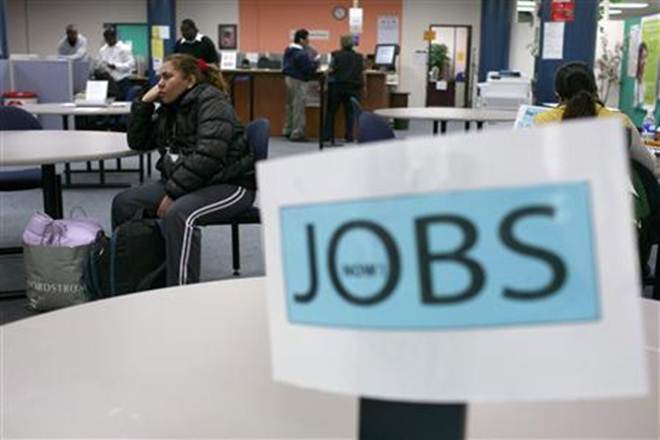Your parents may be responsible for job problems: study
Tue 12 Jul 2016, 12:44:03

If your kids have problems at work, you may be responsible to some extent for the trouble, according to a new study which found a link between parenting styles and workplace behaviour.
"It really is about both parents, but because mothers are typically the primary caregivers of the children, they usually have more influence on their children," said Peter Harms from University of Alabama in the US.
Researchers studied manager-employee relationships in the workplace and found a link between parenting styles and workplace behaviour.
Their research was based on the work of John Bowlby, an early psychoanalyst, who argued that the way parents treat their offspring could have long-term implications for how their children approach relationships.
In particular, the work focused on how parents acted when their infants cried out for help. "You will see this in almost any parenting book you buy. Should you let the baby cry, or should you rush to comfort them," said Harms.
Babies learn over time that when they feel abandoned or threatened they can either count on their parent to come to their rescue right away or they need to escalate to high levels of distress in order to get attention.
Or, if babies learn that parents are not a reliable source of comfort, they stop making overt appeals for help. Individuals with reliable parents view others as potential sources of support. Those individuals with unreliable parents tend not to see parents as sources of support,
researchers said.
These people are often categorised as having anxious or avoidant attachment depending on the style they adopted to cope with distress, they said.
"Anxiously attached people genuinely want to be loved, but they are nervous that the important people in their lives will not return their affection," said Harms.
"They overreact anytime they think their relationships are threatened. They use guilt and extreme emotional displays so that others will stay near and reassure them. They get really upset and cannot turn it off," Harms said.
"On the other hand, avoidant people feel, 'I do not want to love you, and you do not need to love me. So just leave me alone.' You will not find these people weeping over broken relationships," he added.
Researchers speculated that individuals may transfer this pattern of thinking into the workplace and, in particular, that it may influence one's relationship with one's boss.
"Your boss is sort of like your parent. They are the ones who can take care of you, they are supposed to train you and support you. This is especially true for individuals new to the workforce," said Harms.
The findings showed that when anxious followers were paired with supportive leaders, they were perfectly fine. But when they were paired with distant, unsupportive leaders, the anxiously attached employees reported higher levels of stress and lower levels of performance.
The study was published in the journal Human Relations.
"It really is about both parents, but because mothers are typically the primary caregivers of the children, they usually have more influence on their children," said Peter Harms from University of Alabama in the US.
Researchers studied manager-employee relationships in the workplace and found a link between parenting styles and workplace behaviour.
Their research was based on the work of John Bowlby, an early psychoanalyst, who argued that the way parents treat their offspring could have long-term implications for how their children approach relationships.
In particular, the work focused on how parents acted when their infants cried out for help. "You will see this in almost any parenting book you buy. Should you let the baby cry, or should you rush to comfort them," said Harms.
Babies learn over time that when they feel abandoned or threatened they can either count on their parent to come to their rescue right away or they need to escalate to high levels of distress in order to get attention.
Or, if babies learn that parents are not a reliable source of comfort, they stop making overt appeals for help. Individuals with reliable parents view others as potential sources of support. Those individuals with unreliable parents tend not to see parents as sources of support,
researchers said.
These people are often categorised as having anxious or avoidant attachment depending on the style they adopted to cope with distress, they said.
"Anxiously attached people genuinely want to be loved, but they are nervous that the important people in their lives will not return their affection," said Harms.
"They overreact anytime they think their relationships are threatened. They use guilt and extreme emotional displays so that others will stay near and reassure them. They get really upset and cannot turn it off," Harms said.
"On the other hand, avoidant people feel, 'I do not want to love you, and you do not need to love me. So just leave me alone.' You will not find these people weeping over broken relationships," he added.
Researchers speculated that individuals may transfer this pattern of thinking into the workplace and, in particular, that it may influence one's relationship with one's boss.
"Your boss is sort of like your parent. They are the ones who can take care of you, they are supposed to train you and support you. This is especially true for individuals new to the workforce," said Harms.
The findings showed that when anxious followers were paired with supportive leaders, they were perfectly fine. But when they were paired with distant, unsupportive leaders, the anxiously attached employees reported higher levels of stress and lower levels of performance.
The study was published in the journal Human Relations.
No Comments For This Post, Be first to write a Comment.
Most viewed from Specials
Most viewed from World
AIMIM News
Latest Urdu News
Most Viewed
May 26, 2020
Do you think Canada-India relations will improve under New PM Mark Carney?
Latest Videos View All
Like Us
Home
About Us
Advertise With Us
All Polls
Epaper Archives
Privacy Policy
Contact Us
Download Etemaad App
© 2025 Etemaad Daily News, All Rights Reserved.





















.jpg)
.jpg)
.jpg)
.jpg)

















